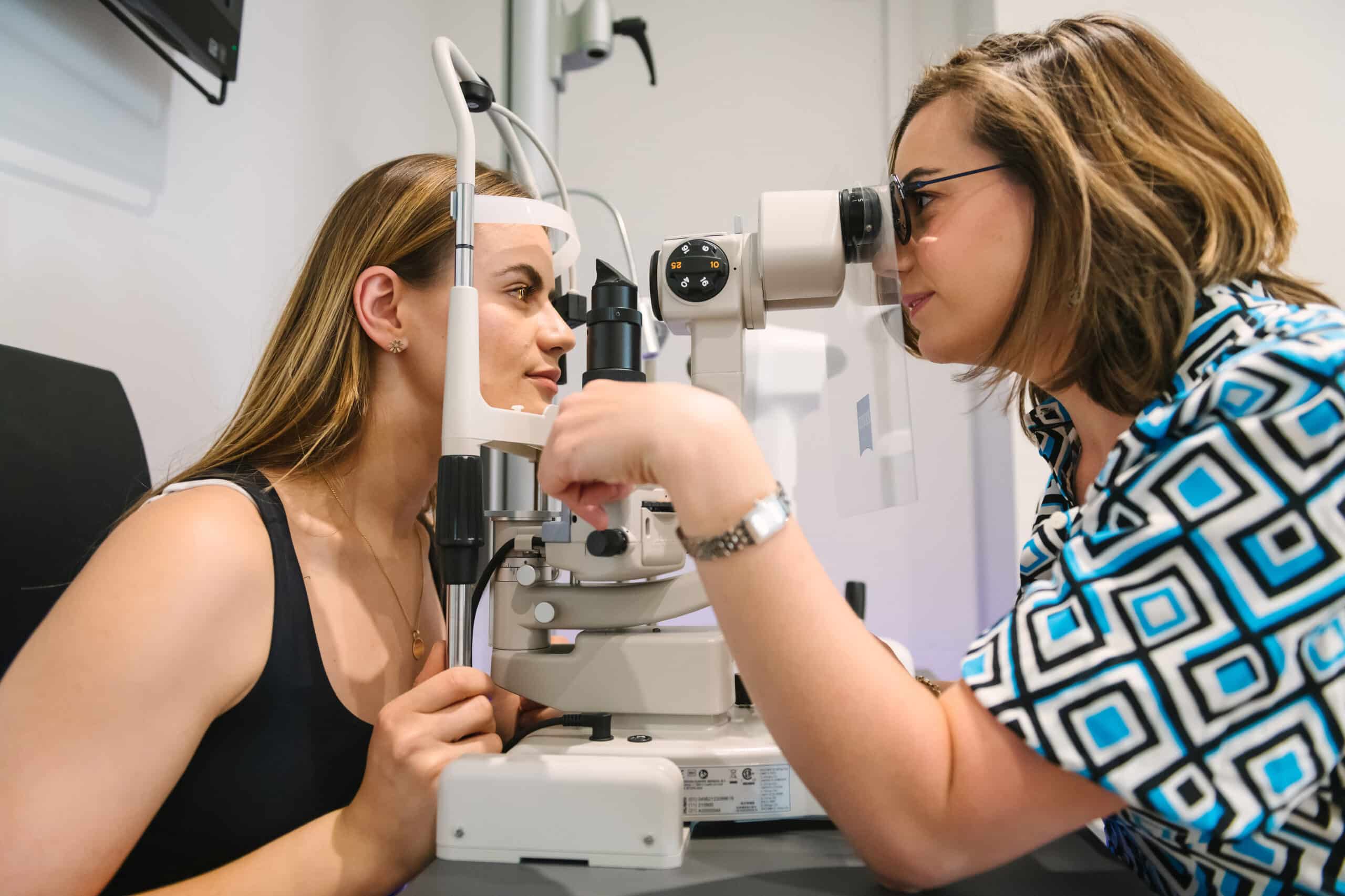Eye examinations can vary in how long they take, and variables that affect how long an eye test takes include age and complexity.
Your vision is precious not only to you but to us as well. This is why we provide only the highest quality care whilst using hospital-grade equipment as standard, with all tests being completed by a fully qualified optometrist to help protect and preserve your vision and monitor your overall eye health.
Compared to the standard eye test which can last just 20 minutes or 30 minutes, we pride ourselves on our comprehensive 60-minute eye examination which uses the highest standard equipment. Not only do our eye examinations reliably tell us if your eyesight has changed in any way, but our state-of-the-art equipment can detect any current and upcoming eye conditions, health issues and potential warning signs for us to keep an eye on.
How Long Does an Adult Eye Test Take? What Happens During One?
Eye examinations with Taylor-West & Co last 60 minutes and offer a full analysis and insight into the condition and overall health of your eyes. Your optometrist will examine the outside and inside of your eye with a range of equipment, such as slit lamps and OCT machines, helping them to determine if you have any vision or eye problems and detect any potential eye health issues years before conventional tests can.
What to Expect During an Eye Test
During your eye examination, your optometrist will first ask you if you’re coming for a routine check-up or if you have any specific concerns about your eyes that we should pay extra attention to. If you do have concerns, you’ll be asked more questions about any symptoms you’ve been experiencing and how long you’ve had them for.
You will also be asked to answer some further questions about your overall health. This will include details on any medication you’re taking, and whether you have a family history of eye issues. If it is your first time, make sure to bring your glasses or contact lenses with you.
We pride ourselves on using £120,000 worth of hospital-grade equipment which accurately and meticulously assesses your vision – ensuring there are no causes for concern related to your overall eye health. We will also conduct several different tests to check different aspects of your vision and eye health. These include:

OCT scan (Optical Coherence Tomography):
Working like an ultrasound for your eye, an OCT exam allows the optometrist to see beyond the surface of the retina with a cross-section view of the layers of tissue which exist behind the retina. OCT exams help us to detect eye conditions like diabetes, glaucoma and age-related macular degeneration as early as up to five years before traditional testing methods – and this allows us to treat them earlier.Vision:
Your optometrist will use a Snellen chart, also known as an eye chart, to test your current visual acuity. By asking you to read random letters on the chart which become smaller line by line, we can see where your vision begins to blur.Your optometrist will then determine whether you need glasses or contact lenses with a refraction test. This is done by placing a series of lenses in front of your eye as you read from the Snellen chart to determine which lens makes it easier to see.
External exams:
Your optometrist will also use a slit lamp to examine your eye externals such as your cornea, conjunctiva, sclera, and your iris.
Pupils and eye muscles:
Your optometrist will then use a penlight to examine your pupils – examining how they react and contract when exposed to light stimuli. You will then be asked to look in different directions, either at the penlight or another object in the room, to test your eye muscles. In certain cases, they may also check whether you have proper peripheral vision and three-dimensional vision, or stereopsis.Internal exams:
You may be given eye drops to dilate your pupils during your internal exams. This will help the optometrist to examine the structures at the back of your eyes, such as the optic nerve if your pupils are small at the time. This will be done with the use of an ophthalmoscope or a highly magnified lens with a slit lamp.Colour blindness:
We can also test for colour deficiency using cards with a range of coloured dots in patterns that form numbers.
What Can an Eye Test Detect?
Our 60-minute eye examinations are so much more than just checking how well your eyes work and how sharp your vision is – your eye health can also provide valuable insight into the health of your body, too. A regular check-up with Taylor-West & Co every two years helps to pick up early signs of eye diseases years before traditional methods can.
A routine eye test can detect:
- Cataracts
- Diabetes
- Glaucoma (increased pressure in the eye)
- High blood pressure
- Changes in the central vision
- High cholesterol

Book your Private Eye Examination Today
The health of your eyes is of utmost importance to us here at Taylor-West & Co, which is why we use £120,000 worth of hospital-grade equipment during your eye examinations to get a full understanding of the workings of your eyes.
We will be able to see whether your eyesight has changed as well as detect any early signs of potential eye diseases years before they start to show bad symptoms.





